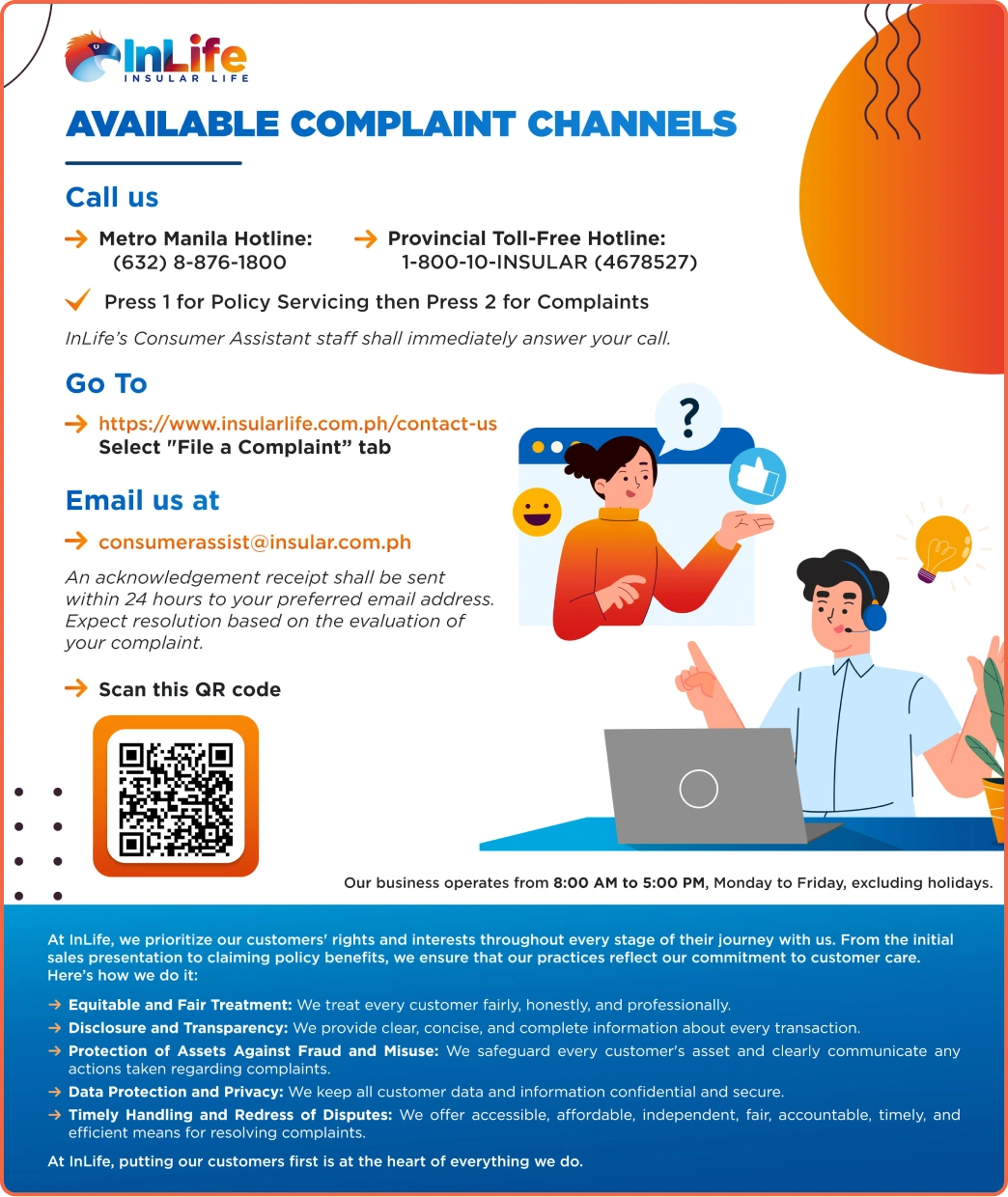Finance Talks and Tips for families While in ECQ
Finance Talks and Tips for families While in ECQ

By: Ysa Benitez
InLife Financial Advisor
Unit Manager, EYJ Insurance Agency, Inc.
For more than a month now, our heroes, our front liners have been fighting the hard battle for us. As we wait it out in the comfort of our homes, we devote the time given to us to staying healthy and spending it with our families.
However, I would hear a lot of my friends during our catch-up video calls, talking about the uncertainties that lie ahead with much fear and worry especially on matters involving money. "What if this enhanced community quarantine (ECQ) lasts for a few more months? How will we cope financially?" Some of them are business owners who had to temporarily cease operations, while some are employees who are concerned about the unpredictability in their jobs.
As a financial advisor, one of the things I urge them to do while we're under ECQ is to sit down with their families to talk, evaluate, and plan ahead because I strongly believe that the best cure for uncertainty is preparation.
So, here are some money talks and tips that can get you started preparing in your own families!
1. Create a Household Budget
Talk:
Creating and observing a household budget is something we need to pay closest attention to during this time. Since all of us are at home 24/7, budget for food and household utilities (electricity bills!) eat up a significant share in our monthly budget. Now that food establishments are also opening up, a lot of us have turned to deliveries to have a taste of the “outside world” somehow. While that’s okay too, we also have to be more creative with our spending so we can increase what we are able to set aside for “uncertain times”.
Set a budget especially for food/groceries, track your spending to make sure you don’t go overboard and encourage everyone to be accountable for it. By doing so, you can allocate a bigger percentage of savings or use it to invest in other important things.
Involving your kids could also teach them some valuable money lessons in the process!
Tip:
Here’s something your teens can do to help. Assign them to do the manual recording/excel sheet for your grocery receipts. Give them a reporting time per day/on certain days pertaining to your spending vs budget. By doing so, you stay on track and you get to teach them, too! You can reward them with pizza time to make the fulfilling tasks more fun! Never too early to get them started!
2. Settle Your Bills
Talk:
While most companies, specifically service providers, were required to give a grace period to its clients/subscribers through the Bayanihan Act, we highly recommend that if liquidity permits, settle your bills as they come. This will prevent bills from piling up and your cash flow from getting disrupted by having to settle everything in bulk once the ECQ has been lifted.
Tip:
Prioritize paying essentials such as electricity, water, and high-interest paying liabilities (i.e. credit cards!). Take advantage of online payment facilities too! Safety first!
3. Update your Emergency Fund
Talk:
If this ECQ has really taught all of us something money-wise, it’s the importance having an emergency fund. An emergency fund helps tide over your family, in case there are disruptions in your regular income.
If you and your family have not started on it yet, it may be a good time to start talking about building it now.
“How much emergency fund do we need?”, “How much do we have?”, “How much can we add to it regularly?”.
Tip:
If you are dual-income earners (i.e. both spouses are working), experts suggest an emergency fund of 3-6 months worth of monthly expenses is ideal. If you are a single-income earner (i.e. single parents!), you have to prepare for 6 months or longer should be the target.
Deposit a regular amount in the bank to keep building up your emergency fund. Automate it, even! Do ask your local banks about this.
4. Cover your risks
Talk:
When dealing with uncertainty, the last thing you would want to do is to add to that uncertainty. This is the best time to foresee and identify potential risks that can further deplete your family’s savings during this time. The most common risk all families face would always be healthcare.
If anyone gets sick in the family and would need medical attention, that could easily eat up a few thousands (or more depending on the case) from your family’s savings. Now would be a good time to check if every member of the family is covered. Illness knows no age. Anyone can be hit.
Tip:
Reallocate some of your family’s budget to securing health insurance plans/HMOs. By doing so, you get to prevent sudden expenses from taking up more from your savings.
Quite unsure about these risks? Talk to an insurance advisor and they would be able to enlighten you.
5. Invest on Alternative Income Sources
Talk:
Use this time to also think about building other income sources. By doing so, if Plan A (current employment, business) gets hit, your other income sources can support you and your family. This would matter not only in crisis situations like this but also if the income earner in the family is unable to work due to one reason or another.
Other alternative income sources to your business/employment could be liquid investments (UITFs, Mutual Funds or Single-Pay VULs). These are investments which require little to no participation from you and since they’re liquid, it will be readily available to you, especially during difficult times.
Tip:
There are liquid investment options where in you can put in a certain amount of seed money then opt for a regular monthly debiting option to help build your funds faster. Talk to a financial advisor about this, too!
So, basically what they said about this ECQ is true – it is forcing all of us to go back to basics and always remember that Personal Finance, first practiced in our homes, is basic. Our generation must be accountable in teaching the next generation to be financially responsible.
Lastly, while we all find our situation difficult today, let us always be mindful of others who are struggling to make it from day to day. So let us also round up our families and share what we can. Because as one of my mentors in the industry would put it, "To strive to be wealthy is a patriotic duty." If your family has been blessed today, pay it forward.







